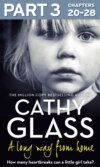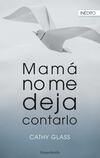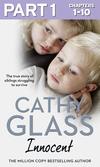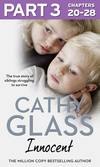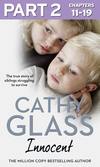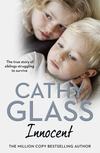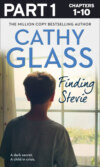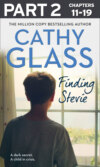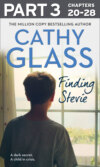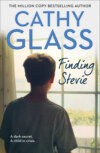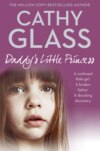Loe raamatut: «A Long Way from Home: Part 3 of 3»

Copyright
Certain details in this story, including names, places and dates, have been changed to protect the family’s privacy.
HarperElement
An imprint of HarperCollinsPublishers
1 London Bridge Street
London SE1 9GF
First published by HarperElement 2018
FIRST EDITION
© Cathy Glass 2018
Cover layout design © HarperCollinsPublishers Ltd 2018
Cover photograph © Elly De Vries/Arcangel (posed by model)
A catalogue record of this book is available from the British Library
Cathy Glass asserts the moral right to be identified as the author of this work
All rights reserved under International and Pan-American Copyright Conventions. By payment of the required fees, you have been granted the nonexclusive, non-transferable right to access and read the text of this e-book on screen. No part of this text may be reproduced, transmitted, downloaded, decompiled, reverse engineered, or stored in or introduced into any information storage retrieval system, in any form or by any means, whether electronic or mechanical, now known or hereinafter invented, without the express written permission of HarperCollins e-books.
Find out about HarperCollins and the environment at
Source ISBN: 9780008275891
Ebook Edition © February 2018 ISBN: 9780008275907
Version: 2018-01-26
Contents
Cover
Title Page
Copyright
Chapter Twenty: Bad at Home
Chapter Twenty-One: Review
Chapter Twenty-Two: Frightened of Her Daughter
Chapter Twenty-Three: Save a Child
Chapter Twenty-Four: A Family Torn Apart
Chapter Twenty-Five: Ian
Chapter Twenty-Six: Missing Her
Chapter Twenty-Seven: Bad Ending
Chapter Twenty-Eight: A Long Way from Home
Suggested topics for reading-group discussion
Cathy Glass
If you loved this book …
Moving Memoirs eNewsletter
About the Publisher
Chapter Twenty
Bad at Home
The strain of having Anna live with us was taking its toll on Adrian and Paula. Since she’d arrived I had hardly spent a minute with them, and they were looking forward more than usual to spending the day with their father on Sunday, when he would take them out somewhere nice. He saw them every month and phoned in between. Regardless of what I thought of him leaving us, I didn’t let it impact on Adrian and Paula’s relationship with him. I told Anna they were seeing their father and I wondered if this would prompt a comment from her about seeing her own parents. She’d hardly mentioned them at all since she’d arrived, which was very unusual. Most children who come into care, even those who have been abused by their parents, pine for them, want to see them as soon as possible and often ask when they can return home. Anna had originally said she didn’t want to see her mother. Had that changed? Apparently not. She didn’t mention wanting to see her parents at all – not then, at least.
Once Adrian and Paula had left with their father, I asked Anna what she would like to do and suggested the cinema, a park (the weather was cold but dry) or an indoor activity centre. She didn’t want to do any of these, so I said we could do something at home then. She shrugged and didn’t offer a better suggestion, so I opened the toy cupboard in the conservatory and asked her to choose some games we could play together. The phone rang and I answered it in the living room. It was my mother; we usually spoke a couple of times a week, but now I said I’d have to call her back later for a chat. When I returned to the conservatory Anna was nowhere to be seen. I’d only been away from her for a couple of minutes. I went round the downstairs calling her name and then upstairs. My bedroom door was wide open and I went in to find her going through my wardrobe.
‘Anna, whatever are you doing?’ I asked, going over.
‘Nothing,’ she said. But she didn’t immediately stop.
‘That’s private,’ I said, and closed the wardrobe door. ‘Do you remember when you first arrived, I explained our bedrooms were private and we didn’t go into each other’s rooms unless we were asked?’
‘You go into mine,’ she said.
I was taken aback. It wasn’t the reaction of an average five-year-old, even one with behavioural issues. ‘Yes, because I am your carer and I look after you. I go into your room to make your bed, put your clothes away and keep it clean and tidy. At your age it’s part of my responsibility. When you are older you can do it yourself. Now come on, out of here, we’re going downstairs to find a game to play.’
She didn’t move, but stood with her back to the wardrobe. ‘I go into my parents’ bedroom whenever I want,’ she said brazenly.
‘That’s up to them,’ I said.
‘No, it’s up to me.’
I believed her, and not for the first time I saw that the distinction between adult and child in their house had become blurred. This, among other things, would make disciplining Anna very difficult. Children need to see the adult in the parent, set apart from them, in order to respect and be guided by them, until they become adults when (hopefully) they have learned what they need to be responsible for themselves.
‘Well, in this house we don’t go into each other’s rooms unless asked,’ I reiterated. ‘Now, come on downstairs and I’ll choose us a game to play.’ This was enough for her to leave.
‘I’m going to choose the game, not you!’ And she rushed out.
I closed my bedroom door. I didn’t want to have to start locking it as I had done with one young person I’d fostered, but I might have to if Anna kept going in. Apart from the privacy issue, I had items likes scissors and nail varnish remover in my room, which could be harmful in a young child’s hands.
Downstairs Anna was already rummaging in the toy cupboard. Taking out a large, brightly coloured jigsaw puzzle suitable for quite young children, she took it to the table. I sat on the chair next to her but it soon became clear she didn’t want me to join her, so I simply sat beside her. When the puzzle was only half complete she gave up, despite my offer to help her finish it, and chose another. The second didn’t get completed either, but the third did. Then she wanted to crayon, then ten minutes later paint, then model with Play-Doh, and so the day continued with a break for lunch.
Usually when I have one-to-one time with the child I’m fostering I find our time together is enjoyable and it advances our relationship, with the opportunity to talk and break down barriers. But I didn’t feel that with Anna, not at all. Although I stayed close by her as she played, she didn’t want me to join in any of the activities and continued to reject me and shut me out of her world. Any questions or comments I made she answered with a shrug or ‘don’t know’, or she just ignored me. It was hard work and the day disappointing. Also, not only had our one-to-one had no positive effect on Anna, I discovered later it had actually had a negative one. When Adrian and Paula returned Anna clearly resented them being back, as she was no longer the centre of attention. She told Adrian she didn’t like him and that his father would die soon.
‘Anna, that’s a hurtful thing to say, and untrue,’ I said.
She shrugged dismissively, then pushed Paula out of her way so hard she fell over. I told her off again and said she’d lost television time. It was an impotent sanction as Anna barely watched television, but I had to do something.
‘Don’t care,’ she said, and clearly didn’t.
The atmosphere was strained, with Adrian and Paula even more wary of Anna now, and at dinner they weren’t their usual chatty selves after a day out with their father. Of course I felt guilty for allowing this to happen. After dinner I read to Adrian and Paula while Anna, who didn’t want to listen, played with one of her toys. Then I began their bath and bedtime routine, taking Anna and Paula up first.
‘Why do I always have to go up before Adrian?’ Anna grumbled.
‘Because you’re younger than him.’
It was around ten o’clock again when Anna finally settled and stopped getting out of bed, and as usual once asleep she slept through until I woke her the following morning for school. I praised her, but not too much, for my amateur psychology said that if Anna thought she was starting to cooperate she would rebel and go back to square one. The following night, to my absolute delight and relief, after I’d said goodnight and come out of her room she didn’t leave her bed, not once! Nor the night after, so I knew we had turned a corner with this issue at least. She might relapse, but it would be easier to correct the next time – the hard work was done here. And this wasn’t just about us all having a good night’s sleep, but about Anna doing what the adult looking after her had asked.
The next morning at eleven o’clock Jill visited as arranged. I made us coffee and we settled in the living room, with the heating turned up and Toscha asleep on her favourite chair. Her visits usually lasted about an hour, but she was with me for nearly two as there was so much to discuss – an indication of how complex Anna’s needs were. By the time she left there was just an hour before I had to return to collect Anna from school. The next time I’d see Jill would be at Anna’s review in three days’ time.
As well as managing Anna’s challenging behaviour I was trying to help her sort out the muddle of thoughts about past and present and who her ‘real’ parents were. The longer Anna was with me the more I appreciated what her teacher, Mrs Taylor, had said about Anna confusing the past and present. So successful had Anna’s parents been in doing what is seen as the right thing and making Anna aware of her origins that it had created confusion, mixed loyalties, insecurity and uncertainty in her. If I asked her about home, she was unsure if I meant the orphanage, home with her birth mother or home with her adoptive parents. Similarly, if I mentioned her mother she’d say, ‘Which mother?’ She told me her father was dead. I didn’t know if her natural father was dead or not, the paperwork didn’t say, but certainly her adoptive father – the one she should have thought of as her father – was alive. Lori was in the process of tracing him.
What I had also noticed was that if Anna mentioned a memory from her early years, before the adoption, it was always of a scene in one of the photographs in her Life Story Book. Sometimes she repeated the caption her parents had written beneath, for example: ‘My mother is a lovely lady. She was very brave outside the court.’ Or, ‘I went on a plane. An hour to landing.’ So that I thought most of her ‘recollections’ were in fact false memories from the Life Story Book. If I asked her anything outside of these, such as, ‘Did you have toys at the orphanage?’ or, ‘What did you have to eat there?’ she didn’t know. I’m not saying she didn’t have any memories of her early years, just that most of what she believed she remembered appeared to be from the photographs and what her parents had told her. It was something I would bring up with her social worker and possibly at the review.
Tasuta katkend on lõppenud.
